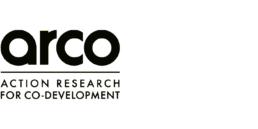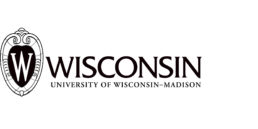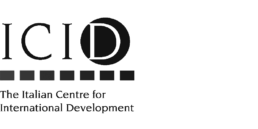Invited Lecturers
Garance GENICOT
Georgetown University
Annika LINDSKOG
University of Gothenburg
Selim GULESCI
Trinity College Dublin
Erika DESERRANNO
Bocconi University and Northwestern University
Invited Lecturers
Garance GENICOT
Georgetown University
Annika LINDSKOG
University of Gothenburg
Selim GULESCI
Trinity College Dublin
Erika DESERRANNO
Bocconi University and Northwestern University
Organizing Board
Martina Menon
University of Verona
Marcello D'Amato
Università degli Studi Suor Orsola Benincasa
Federico Perali
University of Verona
Alessandro Tarozzi
EUI, Universitat Pompeu Fabra and Barcelona GSE
Francesco Cecchi
Wageningen University
Gaurav Datt
Monash University
Giuseppe Pignataro
University of Bologna
Denni Tommasi
University of Bologna
Organizing Board
Martina Menon
University of Verona
Marcello D'Amato
Università degli Studi Suor Orsola Benincasa
Federico Perali
University of Verona
Alessandro Tarozzi
EUI, Universitat Pompeu Fabra and Barcelona GSE
Francesco Cecchi
Wageningen University
Gaurav Datt
Monash University
Giuseppe Pignataro
University of Bologna
Denni Tommasi
University of Bologna
General information
The workshop is intended for PhD students, post‐docs and junior faculty members. The aim is to provide young researchers with mentoring as well as with exposure to cutting‐edge empirical and theoretical research in development economics. Participants will have the opportunity to present their own research projects and to discuss them with leading researchers in a relaxed and constructive atmosphere.
The workshop will include presentations of both completed research papers and work‐in‐progress, both empirical and theoretical. The number of participants will be limited to about 40. About 15 will be selected for a thirty minutes presentation, thus allowing for in‐depth discussion of each contribution. About 15-20 papers will be selected for a poster session that will be in place for the whole duration of the conference. Presentations by graduate students, post‐docs and other junior researchers who have recently acquired their PhD will be key components of the workshop. Applicants can submit either a complete paper or a detailed and well‐developed research proposal. We particularly welcome the submission of work‐in‐progress proposals that describe on‐going and promising research, likely to benefit from an open discussion about the main conceptual and methodological problems related to the project. Please note that participants are expected to attend the entire conference. Participants who do not wish to present a paper are also welcome.
General information
The workshop is intended for PhD students, post‐docs and junior faculty members. The aim is to provide young researchers with mentoring as well as with exposure to cutting‐edge empirical and theoretical research in development economics. Participants will have the opportunity to present their own research projects and to discuss them with leading researchers in a relaxed and constructive atmosphere.
The workshop will include presentations of both completed research papers and work‐in‐progress, both empirical and theoretical. The number of participants will be limited to about 40. About 15 will be selected for a thirty minutes presentation, thus allowing for in‐depth discussion of each contribution. About 15-20 papers will be selected for a poster session that will be in place for the whole duration of the conference. Presentations by graduate students, post‐docs and other junior researchers who have recently acquired their PhD will be key components of the workshop. Applicants can submit either a complete paper or a detailed and well‐developed research proposal. We particularly welcome the submission of work‐in‐progress proposals that describe on‐going and promising research, likely to benefit from an open discussion about the main conceptual and methodological problems related to the project. Please note that participants are expected to attend the entire conference. Participants who do not wish to present a paper are also welcome.
How to reach us
By air
Florence Airport is approximately 25 minutes by car or 40 minutes by bus to Prato. Taxis and regular bus services run between Prato and Florence Airport. Alternatively, there is a bus service operated by CAP bus company, located just outside the airport area on the main street. Pisa Airport is approximately 1 hour and 50 minutes to Prato by train, or 70 minutes by Terravision bus to Firenze Santa Maria Novella Station, Florence. Note that you need to change train twice when arriving from Pisa airport to Prato. Bologna Airport is a 30 minute bus or taxi ride to Bologna train station. From there, it is a 50 minute journey on a regional train to Prato. Rome Airport (Leonardo Da Vinci-Fiumicino) is 45 minute train journey to Rome Termini train station and 3 hours by train to Prato.
By train
Prato is a 25 minute train ride from Florence, approximately 50 minutes from Bologna and 1.5 hours from Pisa. There are two train stations operating in Prato, Prato Centrale and Prato Porta al Serraglio. The train station closest to the Monastero San Leonardo - Villa del Palco is Prato Centrale and is a 30 minute walk or 10 minute by bus or taxi. Train timetables are available online on the Trenitalia website.
By bus
Prato can also be reached from Florence by bus, the CAP bus company operates the Prato-Florence line and departs from outside the main Florence train station. If arriving at Prato Centrale railway station, you can take the Linea 11 bus 'Direzione Ciardi', bus stop 'San Bernardino', located 150 metres from the Monastero San Leonardo - Villa del Palco. Bus information is available on the CAP website.
How to reach us
Florence Airport is approximately 25 minutes by car or 40 minutes by bus to Prato. Taxis and regular bus services run between Prato and Florence Airport. Alternatively, there is a bus service operated by CAP bus company, located just outside the airport area on the main street. Pisa Airport is approximately 1 hour and 50 minutes to Prato by train, or 70 minutes by Terravision bus to Firenze Santa Maria Novella Station, Florence. Note that you need to change train twice when arriving from Pisa airport to Prato. Bologna Airport is a 30 minute bus or taxi ride to Bologna train station. From there, it is a 50 minute journey on a regional train to Prato. Rome Airport (Leonardo Da Vinci-Fiumicino) is 45 minute train journey to Rome Termini train station and 3 hours by train to Prato.
Prato is a 25 minute train ride from Florence, approximately 50 minutes from Bologna and 1.5 hours from Pisa. There are two train stations operating in Prato, Prato Centrale and Prato Porta al Serraglio. The train station closest to the Monastero San Leonardo - Villa del Palco is Prato Centrale and is a 30 minute walk or 10 minute by bus or taxi. Train timetables are available online on the Trenitalia website.
Prato can also be reached from Florence by bus, the CAP bus company operates the Prato-Florence line and departs from outside the main Florence train station. If arriving at Prato Centrale railway station, you can take the Linea 11 bus 'Direzione Ciardi', bus stop 'San Bernardino', located 150 metres from the Monastero San Leonardo - Villa del Palco. Bus information is available on the CAP website.
Accommodation
Accommodation at Monastero San Leonardo - Villa del Palco will be covered by participation fee. Full address: Monastero di San Leonardo al Palco, via del Palco 228, 59100 – Prato. TRAVEL COSTS ARE COVERED BY THE PARTICIPANT
Accommodation
Accommodation at Monastero San Leonardo - Villa del Palco will be covered by participation fee. Full address: Monastero di San Leonardo al Palco, via del Palco 228, 59100 – Prato. TRAVEL COSTS ARE COVERED BY THE PARTICIPANT
Partners





Partners





Program
Monday 26
Tuesday 27
Wednesday 28
Morning Session
9:10
10:30
TBA
TBA
TBA 10:30
11:00
Coffee Break
11:00
12:30
12:30
13:10
13:10
14:15
Lunch
Afternoon Session
14:30
15:10
15:10
15:50
15:50
16:20
Coffee break
16:20
17:00
17:00
17:40
Monday 26
Tuesday 27
Wednesday 28
Morning Session
9:10
10:30
TBA
TBA
10:30
11:00
Coffee Break
11:00
12:30
12:30
13:10
13:10
14:15
Lunch
Afternoon Session
14:30
15:10
15:10
15:50
15:50
16:20
Coffee break
16:20
17:00
17:00
17:40
Torre del Falasco Prize
The Scientific Committee is assigning the "Torre del Falasco" Prize consisting of a magic number of Amarone Bottles of the Cantina Valpantena to the best paper presented at the Summer Schools by a junior scholars. The prestigious "Torre del Falasco" line of Cantina Valpantena owes its name to the brigand Falasco, who, in the seventeenth century, struck the valley as a cove in a small tower in the hamlet of Stallavena north-east of Verona. This soon became a symbol of linkage with the territory and reason of storytelling and traditions that are well accompanied by any wine from the Torre del Falasco line. The Torre del Falasco wines can count on a constant, accurate and meticulous care of the vineyard and a selection of grapes from the field, which allows the birth of these wines of exceptional value.
Torre del Falasco Prize
The Scientific Committee is assigning the "Torre del Falasco" Prize consisting of a magic number of Amarone Bottles of the Cantina Valpantena to the best paper presented at the Summer Schools by a junior scholars. The prestigious "Torre del Falasco" line of Cantina Valpantena owes its name to the brigand Falasco, who, in the seventeenth century, struck the valley as a cove in a small tower in the hamlet of Stallavena north-east of Verona. This soon became a symbol of linkage with the territory and reason of storytelling and traditions that are well accompanied by any wine from the Torre del Falasco line. The Torre del Falasco wines can count on a constant, accurate and meticulous care of the vineyard and a selection of grapes from the field, which allows the birth of these wines of exceptional value.
Application
Researchers interested in participating should 1) submit a short CV (pdf file) and 2) a complete paper or a detailed research proposal (pdf file), using our online application form.Participants who are interested in attending the workshop but do not intend to present a paper are required to fill in the application form.The application should be submitted by March 31, 2024. Admissions decision will be announced by April 15, 2024. Applicants will be informed about the selection results by email.The participation fee (€600 for graduate students and post‐docs, €750 for faculty) will cover the costs of meals and lodging in double or triple room for the duration of the workshop (arrival June 9 - departure June 12, 2024). Travel expenses are not covered by the participation fee.Participants are encouraged to stay for the entire duration of the summer school. If it is not feasible, please specify the duration of the stay in the “note” field in the application form. We will give priority to participants who stay for the entire duration.Deadline for payment of the participation fee May 1, 2024.
Apply
Application
Researchers interested in participating should 1) submit a short CV (pdf file) and 2) a complete paper or a detailed research proposal (pdf file), using our online application form. Participants who are interested in attending the workshop but do not intend to present a paper are required to fill in the application form. The application should be submitted by March 31, 2024. Admissions decision will be announced by April 15, 2024. All applicants will be informed by email about the selection results.
The participation fee (€600 for graduate students and post‐docs, €750 for faculty) will cover the costs of meals and lodging in double or triple room for the duration of the workshop (arrival June 25 - departure June 29, 2023). Travel expenses are not covered by the participation fee. Participants are encouraged to stay for the entire duration of the summer school. If it is not feasible, please specify the duration of the stay in the “note” field in the application form. We will give priority to participants who stay for the entire duration. Deadline for payment of the participation fee May 31st, 2023.
Alumni Network & Personal Area
Please connect to the alumni network platform and click "login" at the bottom.The first time you need to create a new account (unless you are from the university of Verona, in this case use your usual credentials)
Alumni NetworkPersonal Area
Alumni Network & Personal Area
Please connect to the alumni network platform and click "login" at the bottom.The first time you need to create a new account (unless you are from the university of Verona, in this case use your usual credentials)
Alumni NetworkPersonal Area